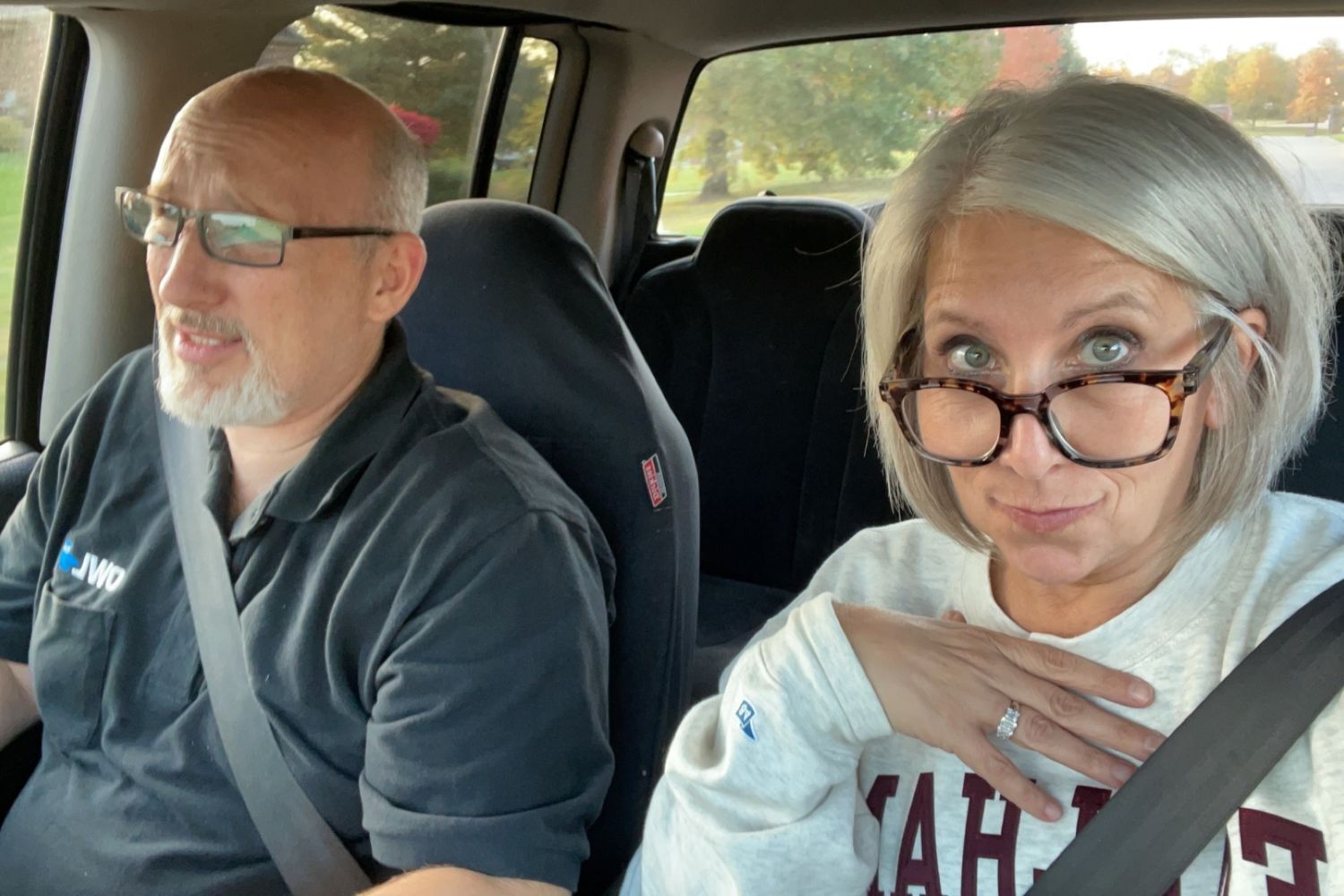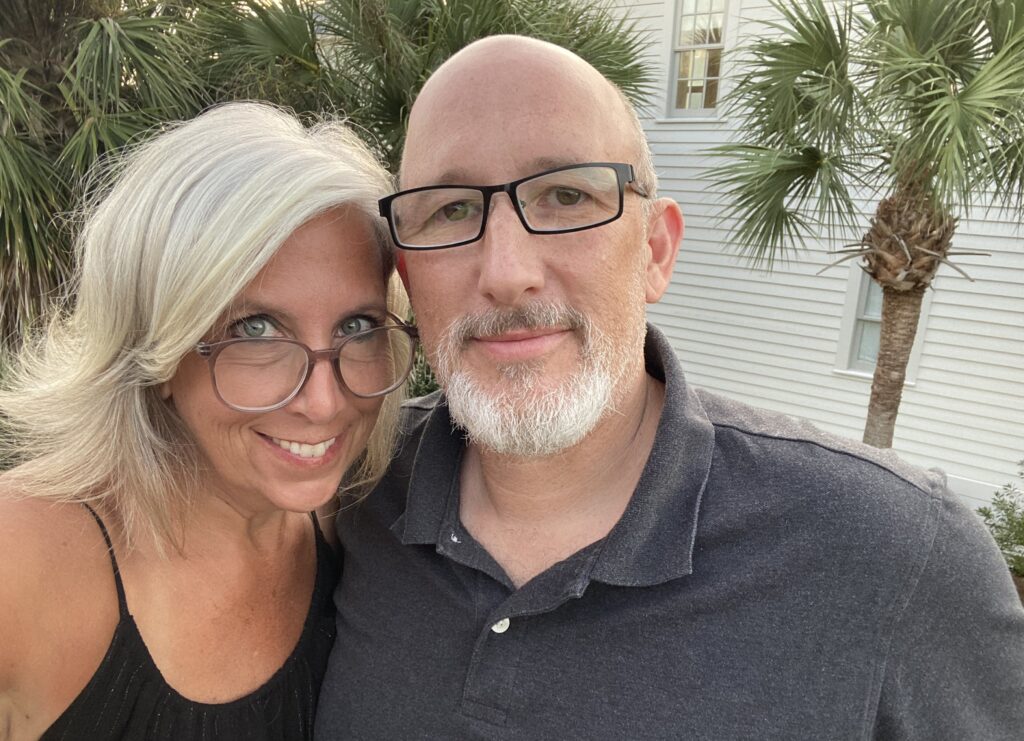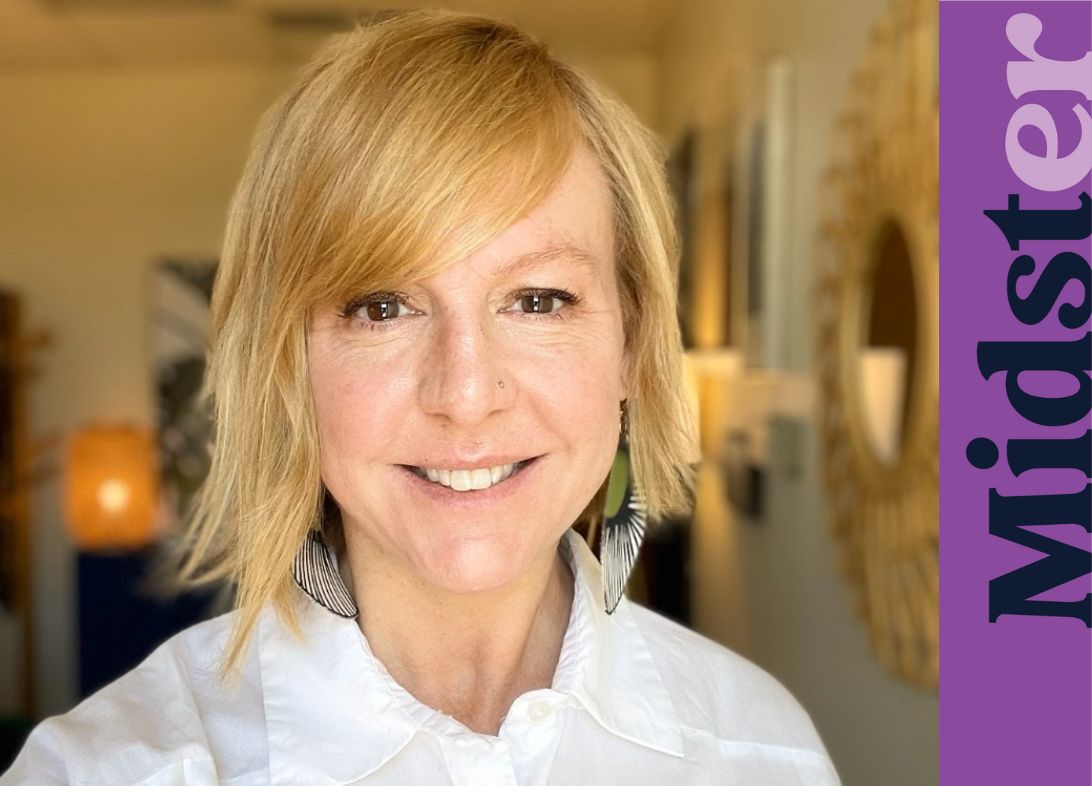
Menopause rage: Let’s talk about the link between menopause and divorce
My husband is bent down on one knee in front of our corner kitchen cabinet where we keep the Tupperware. The cabinet has two Lazy Susan shelves that spin, making it easy to organize whatever is stored there—easy unless the cabinet is so cluttered that some of the Tupperware has fallen off the shelves, blocking the Lazy Susans from turning. He is irritated.
“Why do we let this cabinet get so messy?” he asks no one in particular. “We’ve got too much in here. We don’t even use it all. Some of these bowls don’t even have lids.” By the time I make my way into the kitchen to see what he’s talking about, he is holding a garbage bag nearly full of Tupperware.
“This is all going in recycling,” he says when he sees me.
“No, it’s absolutely not,” I say. Without warning, I am defiant and indignant. Unsurprisingly to no one in my house, I am, almost instantaneously, mad and ready to fight … about Tupperware. Not just Tupperware, but Tupperware we don’t need that my husband has taken the time to declutter and recycle. This is my menopause.
Without warning, I am defiant and indignant. Unsurprisingly to no one in my house, I am, almost instantaneously, mad and ready to fight … about Tupperware.
Which menopause symptoms impact our relationships?
In addition to menstrual cycle changes (or lack thereof), the American College of Obstetricians and Gynecologists (ACOG) lists three–yes, only three—primary perimenopause symptoms on an FAQ page under a section of its website titled “The Menopause Years.” The three “signs and symptoms” are hot flashes, sleep disorders, and vaginal and urinary tract changes. The generous use of the word ‘changes’ in that last symptom immediately makes me rageful. The Mayo Clinic’s website confirms a few more symptoms beyond the obvious three, including chills, night sweats, weight gain and slowed metabolism, thinning hair and dry skin, loss of breast fullness, and mood changes.
The phrase “mood changes,” (FYI, I consider this a generous use of the word “changes”), feels closer to what I’m going through. After reading the limited number of symptoms provided by the ACOG and Mayo Clinic, it makes total sense why I feel so much menopausal rage. My body isn’t just changing, it’s metamorphosing and the only thing that comes close to explaining how I feel is Mary Ruefle’s essay “Pause” published in Granta Magazine eight years ago.
“Reading this, or any other thing ever written about menopause, will not help you in any way, for how you respond to menopause is not up to you, it is up to your body, and though you believe now that you can control your body (such is your strength after all that yoga), you cannot,” writes Ruefle.
I’m finding that not only can I not control my body, I struggle to contain my emotional responses to events that wouldn’t even generate a beep on my cognitive radar a few short years ago. It is as if my menopausal body is now a divining rod for my soul’s lowest possible vibrational frequency. My marriage is the unfortunate casualty of all this rage because it’s usually my husband in the room when I go off the rails.
What I’m finding is that not only can I not control my body, I’m struggling to contain my emotional responses to events that wouldn’t even generate a beep on my cognitive radar a few short years ago. It is as if my menopausal body is now a divining rod for my soul’s lowest possible vibrational frequency. My marriage is the unfortunate casualty of all this rage because it’s usually my husband in the room when I go off the rails.
In those moments—when I simply cannot believe my husband would have the audacity to do something like get rid of years-old marinara-stained Tupperware without asking me first—I think, I just want to be left alone, in my own house, without any compromising or negotiating or sudden decisions to declutter stuff without giving me time to adjust to the decluttering process. As if throwing out Tupperware is somehow an affront to me and this new body I am trying, but failing, to ease into. The irony of my menopause is that it is just as plausible that I would have snapped had I decided on a whim to clean out the kitchen cabinets myself with no one offering to help.

Lack of funding for menopause research is keeping us all in the dark
I know that my sudden intense surges of anger are connected to the massive hormonal shifts happening to me. But menopause, like all of women’s health, is seriously under-researched so there is still a lot we don’t know. In fact, according to a recent Nature.com report on the disparity in women’s healthcare funding, the National Institutes of Health (NIH) hasn’t assigned a unique identification code to menopause research. Someone wanting to find out the actual amount of money devoted to menopause research would have to, “read every grant that mentions ‘menopause’ and add up the numbers manually,” claims the report. It goes on to say that four members of Congress recently introduced a bill that would require the NIH to evaluate how much has been spent on research.
Learning about all of this also incites my rage. Not just the fact that we lack any real insights on the amount of funding going to menopause research, but also that the NIH doesn’t even classify menopause research as its own category, rendering it less important than all the other research it does track.
The menopausal wisdom of 16th century physicians
This lack of funding may be why the perimenopause “signs and symptoms” listed on the ACOG website have not evolved all that much since the 1500s. According to Heather Corinna’s book What Fresh Hell Is This? Perimenopause, Menopause, Other Indignities, and You (one of my favorites on the topic), the Italian physician Giovanni Marinello and French physician Jean Liébault named the following menopause symptoms in the mid-sixteenth century: Night sweats, joint pain, fatigue and lethargy, headaches, and changes in sexual desire.
To Marinello and Liébault’s credit, their list of symptoms that coincided with the cessation of menstruation is more comprehensive than ACOG’s list—and this was before the word “menopause” was even a word.
One of the more thorough lists I find for menopause symptoms is from a blog post by Midday, an app that aims to, “Create a digital health solution to transform the menopause life stage.” With a total of 34 symptoms, Midday’s blog post includes things like anxiety, depression, irregular heartbeat, memory lapses, constipation, nausea, burning mouth, brittle nails, and osteoporosis. It decidedly does not include listening to Sharon Van Etten’s “Seventeen” on repeat, weeping in the produce section of my local grocery store, or realizing, while on my way to dinner with friends, that I have applied mascara to only one eye. But I am sure these behaviors are also signs that I am going through the change.
Why women need more resources, more information, and more research about menopause
The Midday app was launched by a healthcare technology startup that bills itself as the first company to use AI and sensor technology to “illuminate the menopause life state” by supporting women with an, “End-to-end platform for personalized evidence-based and science-backed insights and therapeutics.” It occurs to me this is one of those rare moments when capitalism indirectly serves women—a technology startup offering up a robust list of symptoms that go far beyond what the ACOG gives us.
With so little insight into what is happening to us at such a pivotal time in our life, how are women not walking around completely vibrating from all of our rage? And not just menopausal women, but any woman who has experienced menstruation? We should have more resources, more information, and more research on the things that have been happening to half of the population since the beginning of time. (And while we’re at it, let’s add higher salaries, more leadership roles, and safe access for all to abortion care.)
With so little insight into what is happening to us at such a pivotal time in our life, how are women not walking around completely vibrating from all of our rage?
As women do, I’ve talked at length about my symptoms with my friends. In a WhatsApp thread with four other women who are all near my age (50), I ask what’s been the worst thing for them about menopause so far. One friend replies immediately: “Like belly fat?”
She then sends four more texts, one right after another:
“Bone density tests?”
“Changing sheets every night?”
“No sleep ever?”
“No sex ever and being okay with that?”

Is there a ‘happily ever after’ (after my period)?
In another group text, one of my friends who is a high school counselor texts me her latest perimenopausal-related bungle: “I also inadvertently emailed my 2022 taxes to a group of students and parents. WTF?” I’ve taken a screenshot of her text because it brings me comfort. I’m not alone, I think, every time I read it. It brings me comfort.
My husband and I have been married 27 years. So far we have survived all the things—and more—that happen when you’re married to someone for more than a quarter of a century: Births of two children, miscarriages, a vasectomy, the death of a parent, home renovations, road trips, layoffs, emergency room visits, addictions and sobriety, a prostate cancer diagnosis alongside a breast cancer diagnosis, and that’s not even the tip of our marriage-iceberg.
When I read him an early draft of this column, he apologizes to me for not being more sympathetic to what I’ve been experiencing. His response melts me in the best possible way and gives me faith that we’ll survive my menopause … yes, even with a few less plastic food-storage containers cluttering the kitchen.




